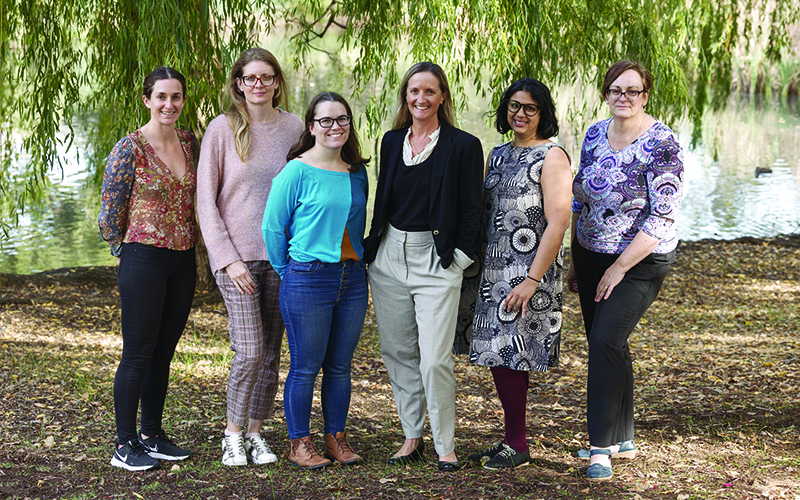Search
Showing results for "early life"
Research
The ventilatory response to hypoxia is blunted in some preterm infants during the second year of lifePreterm birth and subsequent neonatal ventilatory treatment disrupts development of the hypoxic ventilatory response (HVR). An attenuated HVR has been identified in preterm neonates, however it is unknown whether the attenuation persists into the second year of life.
Research
Cerebral PalsyA non-progressive motor disability due to damage of the developing brain, this is the most common physical disability in childhood. Affecting about one in 500 babies, it is frequently accompanied by other neurological impairments, such as intellectual or sensory.
Research
Access to Oral Healthcare in Individuals With Rett Syndrome: A Qualitative Study of Parent PerspectivesIntellectual and developmental disabilities (IDD) are varied in their nature and presentation. Barriers to oral healthcare are reported in studies of general populations with IDD but these may not reflect the barriers experienced by individuals with rare disorders such as Rett syndrome.
Research
Development of a video-based evaluation tool in Rett syndromeThis paper describes the development of a video-based evaluation tool for use in Rett syndrome (RTT).
Research
Autonomic breathing abnormalities in Rett syndrome: caregiver perspectives in an international database studyOur aims were to characterize the abnormal breathing patterns and abdominal bloating, investigate the distribution of these by age and mutation type and examine their impact and management from a caregiver perspective.
Research
Comparing Parental Well-Being and Its Determinants Across Three Different Genetic Disorders Causing Intellectual DisabilityThis cross-sectional study examined parental well-being in caregivers of children with one of three genetic disorders associated with intellectual disability.
Research
Improving clinical trial readiness to accelerate development of new therapeutics for Rett syndromeRett syndrome is associated with severe functional impairments and many comorbidities, each in urgent need of treatments. Mutations in the MECP2 gene were identified as causing Rett syndrome in 1999. Over the past 20 years there has been an abundance of preclinical research with some studies leading to human clinical trials.
Research
Can telehealth increase physical activity in individuals with Rett syndrome? A multicentre randomized controlled trialTo evaluate the effects of a physical activity programme on sedentary behaviour and physical activity in ambulant individuals with Rett syndrome.
Research
Jurisdictional, socioeconomic and gender inequalities in child health and development:Early child development may have important consequences for inequalities in health and well-being. This paper explores population level patterns of child...

Childcare centres have flocked to take up a new evidence-based policy to help ensure young children get more of the physical activity they need to be healthy and developmentally on track.
